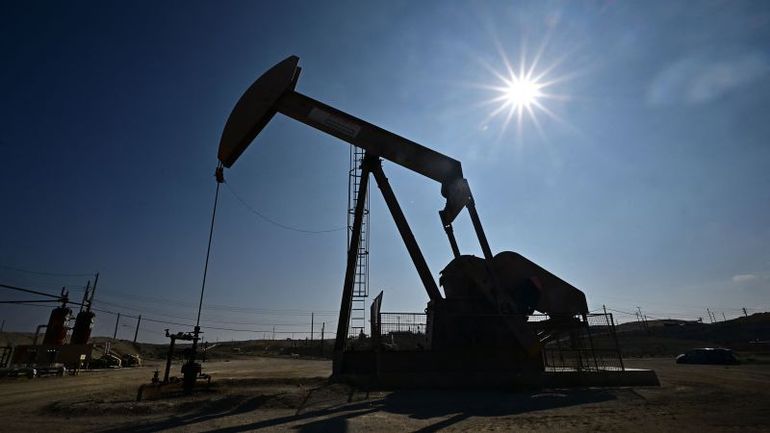
Rising Oil Prices Amid Middle East Tensions

Amidst a backdrop of escalating tensions in the Middle East, oil prices surged on the latest trading day. Asian markets also felt the impact, reflecting global concerns following reported explosions near Isfahan in Iran.
Oil prices surged on Friday as Asian markets took a hit. Global investors were concerned about increased tensions in the Middle East following reported explosions near Isfahan in Iran.
During Asian morning trading hours, US crude futures climbed 2.1% to reach $84.5 per barrel. Meanwhile, Brent crude, the global oil benchmark, saw a 2% increase.
A US official informed CNN that Israel has conducted a strike inside Iran, potentially escalating tensions in the region. When asked by CNN about reports of explosions in Iran, the Israeli military responded by saying, "we don't have a comment at this time."
Prime Minister Benjamin Netanyahu stated on Thursday that Israel will make its own decisions in response to Iran's recent airstrikes, most of which were intercepted. The attacks were launched by Iran in retaliation for a suspected Israeli strike on its embassy compound in Syria earlier this month.
Analysts from ANZ mentioned on Friday that the market has been tense after Iran's missile and drone attack on the Jewish state. They highlighted that Israel's reaction could impact the potential threat to oil supplies. Additionally, the analysts noted that there are still significant disruptions in the oil market.
The United States has decided to reimpose sanctions on Venezuela's oil sector, potentially causing disruptions to its exports. Mexico has also announced plans to reduce exports due to high domestic demand.
Meanwhile, gold prices surged as investors sought safe-haven assets, with futures briefly rising by 1% to reach $2,422.4 per ounce during Asian trading hours.
Bitcoin's price fell below $60,000 on Friday morning due to decreased interest in risky assets. By Friday noon, it had recovered slightly to trade at $62,406, although still down 2% from the day before.
In Asia, stock markets also experienced declines.
Japan’s Nikkei 225 dropped by 2.6%, while South Korea’s Kospi fell by 2.3%. Hong Kong’s Hang Seng Index also experienced a decline of 1.3%, whereas China’s Shanghai Composite was down by 0.4%.
On the other hand, shares in oil suppliers saw a significant increase, going against the overall downward trend in the market.
In Hong Kong, PetroChina, the biggest oil and gas supplier in Asia, saw a 2.3% increase in its stock. CNOOC, the largest offshore crude producer in China, also went up by 2.8%. Sinopec, known as the world's biggest oil refining company in terms of capacity, experienced a 1.3% rise.
Moving to Tokyo, the refiner Cosmo Energy had a 1.5% growth in its shares. Energy giant Eneos Corp. also had a positive day with a 0.7% increase. Meanwhile, in Seoul, S-Oil Corp saw a 2.1% rise in its stock prices.
Editor's P/S:
The article highlights the complex interplay between geopolitical tensions and global financial markets. The reported explosions in Iran and escalating tensions in the Middle East have sent shockwaves through the oil market, leading to a surge in prices. Amidst these uncertainties, investors are seeking safe-haven assets, driving up the price of gold. The decline in Asian stock markets further underscores the potential impact of geopolitical events on the global economy.
The article also sheds light on the paradoxical reactions within the energy sector. While overall market sentiment is bearish, shares of oil suppliers have surged, indicating that investors anticipate increased demand and potential supply disruptions. The re-imposition of sanctions on Venezuela's oil sector and Mexico's plans to reduce exports further exacerbate concerns about the stability of the global oil supply. These factors underscore the dynamic nature of the energy market and its sensitivity to geopolitical events.













